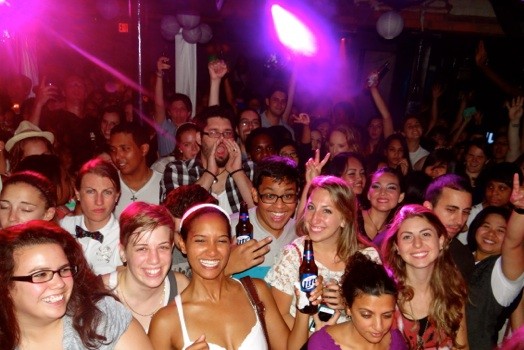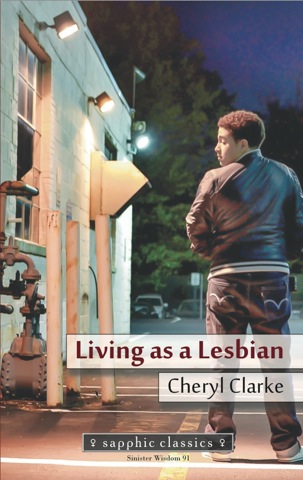

 This year Sinister Wisdom and A Midsummer’s Night Press will publish the second book in the Sapphic Classic series.The goal is to reprint iconic lesbian poetry to showcase the beauty of the past and bring it to a more contemporary audience. The first book in the series was Minnie Bruce Pratt’s Crime Against Nature and this year they have released Cheryl Clarke’s Living as a Lesbian.
This year Sinister Wisdom and A Midsummer’s Night Press will publish the second book in the Sapphic Classic series.The goal is to reprint iconic lesbian poetry to showcase the beauty of the past and bring it to a more contemporary audience. The first book in the series was Minnie Bruce Pratt’s Crime Against Nature and this year they have released Cheryl Clarke’s Living as a Lesbian.
Living as a Lesbian was first published in 1986 and documents the life of Clarke as she experiences life growing up in Washington, D.C. and her growing sexuality. It is an exploration of her political activism and life’s disasters both natural and man-made. Each piece like sipping down a smooth saxophone blues solo. The book manages to promote an atmosphere of worldly intimacy. Living as a Lesbian brings life to the experiences of women who are often left without a voice.
Cheryl Clarke a proclaimed lesbian-feminist is one of the many legendary activists and writers of the movement and describes it as:
Lesbian feminists did the work and the word. We took the potluck to new levels; most night of the week, on Saturday mornings, Sunday afternoons at meetings and on projects. At fundraising events for those projects. At the proof-reading and lay-out meeting. After an afternoon of wrapping and trips to the post office with scores of parcels among you in somebody’s old VW or Corolla. The lesbian-feminist theater group, the tickets, the box office, the folding chairs, the posters, the feeding of the cast and crew; the film set is someone’s loft with 20 volunteers on hand to make up, dress, direct, film, feed the cast and crew; the lesbian-led national conference on violence against women of color on a drayed shoe string budget under the aegis of a lesbian editorship; the all-volunteer lesbian health fair; at the weekend-long board retreat, where we supplied the food and cooked it too. Lesbian feminism put our feminist messages out to our constituencies—other lesbians, women identified women, gay women of color and “women for whom relationships with women are an essential part of their lives.” Lesbians of African descent were/are everywhere. Women of color sometimes code for “lesbians of color” were/are everywhere. Lesbians of all colors worked very hard to produce for our imagined audiences. We claimed and challenged our masculinity, femininity, blackness, whiteness as well as our androgyny and hybridity, liminality, and marginality. We produced politics and culture for us, by us, about us.
Clarke continues her tireless activism with her calls to action to challenge our politics and question ourselves and our lives. Her work as a writer and activist influences all of her work which includes Narratives: poems in the tradition of black women (1982), Humid Pitch (1989), and Experimental Love (1993); the critical study, After Mecca: Women Poets and the Black Arts Movement (Rutgers Press, 2005); and The Days of Good Looks: Prose and Poetry 1980-2005 (Carroll and Graf, 2006).
The reprinting of Clarke’s work helps to bridge generations in the lesbian community giving the opportunity to see all the changes that have happened and all that has stayed the same.